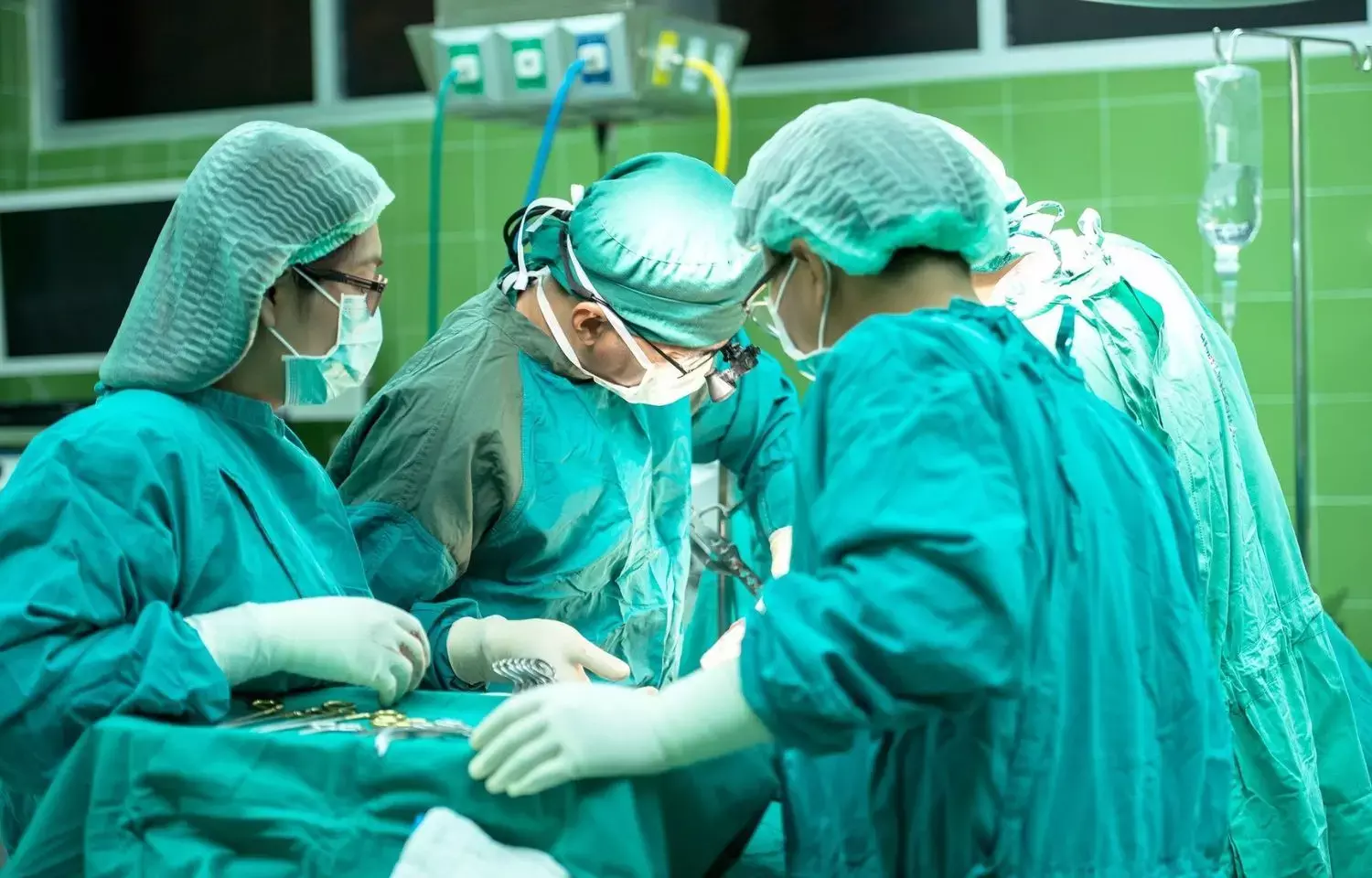- Home
- Medical news & Guidelines
- Anesthesiology
- Cardiology and CTVS
- Critical Care
- Dentistry
- Dermatology
- Diabetes and Endocrinology
- ENT
- Gastroenterology
- Medicine
- Nephrology
- Neurology
- Obstretics-Gynaecology
- Oncology
- Ophthalmology
- Orthopaedics
- Pediatrics-Neonatology
- Psychiatry
- Pulmonology
- Radiology
- Surgery
- Urology
- Laboratory Medicine
- Diet
- Nursing
- Paramedical
- Physiotherapy
- Health news
- Fact Check
- Bone Health Fact Check
- Brain Health Fact Check
- Cancer Related Fact Check
- Child Care Fact Check
- Dental and oral health fact check
- Diabetes and metabolic health fact check
- Diet and Nutrition Fact Check
- Eye and ENT Care Fact Check
- Fitness fact check
- Gut health fact check
- Heart health fact check
- Kidney health fact check
- Medical education fact check
- Men's health fact check
- Respiratory fact check
- Skin and hair care fact check
- Vaccine and Immunization fact check
- Women's health fact check
- AYUSH
- State News
- Andaman and Nicobar Islands
- Andhra Pradesh
- Arunachal Pradesh
- Assam
- Bihar
- Chandigarh
- Chattisgarh
- Dadra and Nagar Haveli
- Daman and Diu
- Delhi
- Goa
- Gujarat
- Haryana
- Himachal Pradesh
- Jammu & Kashmir
- Jharkhand
- Karnataka
- Kerala
- Ladakh
- Lakshadweep
- Madhya Pradesh
- Maharashtra
- Manipur
- Meghalaya
- Mizoram
- Nagaland
- Odisha
- Puducherry
- Punjab
- Rajasthan
- Sikkim
- Tamil Nadu
- Telangana
- Tripura
- Uttar Pradesh
- Uttrakhand
- West Bengal
- Medical Education
- Industry
Combined oral contraceptives don't increase macromastia risk after breast reduction surgery among adolescents

USA: Researchers have found in a new study that combined oral contraceptives (COCs) do not increase the risk of macromastia nor do they increase breast regrowth risk in adolescents and young women after breast-reduction surgery, . In fact, the use of combined oral contraceptives containing both estrogen and progestin may lower the risk of severe breast hypertrophy.
The study has been published in the journal Plastic and Reconstructive Surgery.
Doctors' encouraged to consider COCs' for young women with macromastia
Breast reduction surgery, or reduction mammaplasty, is an effective treatment to reduce pain and psychosocial problems in adolescents and women with macromastia. Combined oral contraceptives are the most widely used type of hormonal contraceptives (HCs). Beyond their contraceptive effects, COCs are prescribed to manage a wide range of conditions in adolescents, including acne, menstrual abnormalities, endometriosis, and polycystic ovary syndrome.
"Despite the positive benefits of COCs, many patients, parents, and providers worry that their use may worsen breast hypertrophy in adolescents," Dr. ASPS Member Surgeon Brian I. Labow, MD, of Boston Children's Hospital and Harvard Medical School and coauthors write. They note, the internet is littered with anecdotal accounts and lay articles suggesting that COC use in adolescents and young women may result in breast growth." Although COCs can cause breast tenderness and swelling due to fluid retention, there is no high-quality evidence that they cause "true glandular hypertrophy" in young women.
What's the true impact of COCs on breast enlargement and symptoms in girls and young women? The study included 378 patients, aged 12 to 21 years, undergoing reduction mammaplasty at Boston Children's Hospital. Severity of macromastia was compared for patients who did and did not use COCs and other HCs, along with breast regrowth in the first year after reduction mammaplasty.
Findings were compared with those in a control group of 378 female patients of similar age. Average age was about 18 years in both groups. Patients with macromastia were more likely to be overweight or obese, consistent with the fact that increased body weight is a risk factor for macromastia.
Overall, patients with macromastia had lower use of HCs: about 38%, compared to 65% in the control group. However, among women using HCs, those with macromastia were more likely to be prescribed COCs: 83% versus 53%. Estrogen and progestin doses were similar between groups.
Among the patients with macromastia, using COCs did not seem to affect the severity of breast enlargement. Median (normalized to height and weight) amount of breast tissue removed during reduction mammaplasty was similar between groups – in fact, somewhat less in patients who used COCs, compared no HC use. Scores for pain and other symptoms of macromastia (such as irritation of the breast skin, difficulty exercising, or problems finding clothes that fit) were also similar between groups.
At a median follow-up of about 2 years after reduction mammaplasty, there was no significant difference in the rate of breast regrowth between patients who did and did not use COCs. Overall, about 5% of patients had postoperative breast regrowth. About half of cases were due to regrowth of the breast gland, rather than associated with weight gain. There was also no increased risk of breast regrowth for women who used COCs after reduction mammaplasty.
The findings help to debunk "pervasive anecdotal claims" that COCs during adolescence may increase the risk of macromastia, Dr. Labow and colleagues believe. They conclude: "Although additional research is needed, providers are encouraged to consider COCs when prescribing HCs for their patients with macromastia when indicated and appropriate."
Reference:
Laura C. Nuzzi et al, The Impact of Combined Oral Contraceptives on Adolescents with Macromastia, Plastic & Reconstructive Surgery (2022). DOI:10.1097/PRS.0000000000009513
Dr Kamal Kant Kohli-MBBS, DTCD- a chest specialist with more than 30 years of practice and a flair for writing clinical articles, Dr Kamal Kant Kohli joined Medical Dialogues as a Chief Editor of Medical News. Besides writing articles, as an editor, he proofreads and verifies all the medical content published on Medical Dialogues including those coming from journals, studies,medical conferences,guidelines etc. Email: drkohli@medicaldialogues.in. Contact no. 011-43720751


